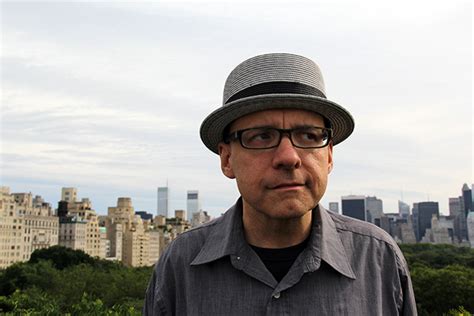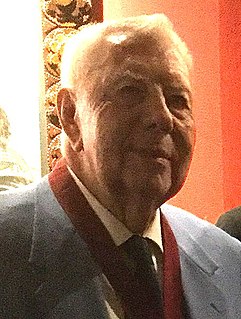A Quote by Paul Muldoon
For whatever reason, people, including very well-educated people or people otherwise interested in reading, do not read poetry
Related Quotes
When people decide to talk publicly about poetry as an art form and how it's received, they often get very abject about it: "Nobody reads poetry," and then a thousand people write back, "No, we read poetry." There's an abundance of this negative preaching to the choir, and it's very similar to the experience I'm having.
People are worse educated than they used to be. Certainly they are not very interested in reading books, as opposed to watching television, movies. They are used to getting things through the eye and the ear. In a small way, literature goes on being written, but few people like it. Once it's bureaucratized by the schoolteachers, the game's up.
My feeling is that most political poetry is preaching to the choir, and that the people who are going to make the political changes in our lives are not the people who read poetry, unfortunately. Poetry not specifically aimed at political revolution, though, is beneficial in moving people toward that kind of action, as well as other kinds of action. A good poem makes me want to be active on as many fronts as possible.
..there is need for a person to be generally educated. Otherwise you shrivel up much too soon. Whether this means reading the bible (I read the New Testament every few years) or reading the great 19th century novelists (the greatest and shrewdest judge of people and of society who ever lived), or classical philosophy (which I cannot read-it puts me to sleep immediately), or history (which is secondary). What matters is that the knowledge worker, by the time he or she reaches middle age, has developed and nourished a human being rather than a tax accountant or a hydraulic engineer.
I can read books and news articles about people who have excelled, people who have done extremely well in their chosen field, or made a lot of money, or married well, or what have you. When some people read this stuff, they get inspired, but when I read it, it makes me feel worse. Sometimes I wish I had never learned to read.
I know well enough that very few people who are supposedly interested in writing are interested in writing well. They are interested in publishing something, and if possible in making a "killing." They are interested in being a writer not in writing. . . If this is what you are interested in, I am not going to be much use to you.
As for the differences between audio and the printed page, the sonic aspects of poetry are important to me. I read my poems aloud to myself as I'm composing them. And I enjoy reading to an audience. I think people get tone more easily when they hear a writer read her work. Some people have told me they hear more humor in my poems at a live reading than when they see them on the page. I think that may be a matter of pacing. On the other hand, I've listened to a lot of poetry readings and I know how much you can miss. If you stop to really register one line, you miss the next three or so.






































